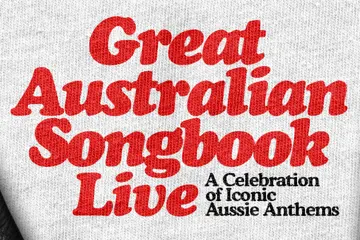 Monique Brumby
Monique BrumbyMonique Brumby plays the Troccadero, Surfers Paradise on Friday and The Healer on Saturday.
Monique Brumby is in a van on the way to Bendigo and another gig on the long road back to the kind of popularity she enjoyed almost a forever ago. It was 1997 when Monique won the Best Female Artist ARIA, following on the massive success of her debut album Thylacine in 1996, and it was around that time that she also stripped for Black & White magazine, and ended up naked on the cover.
Then there was silence. An EP, Eventide, came and went in 1998 and the silence grew longer and longer. Rumours came and went about a war between Brumby and her record company Sony; now it seems they were true. But the likeable, straight forward woman who grew up in small town Australia and understands the mentality that rules such populations as much as she does the genuine appreciation these people have for any band that cares to drop by, has found her way back.
Her new album, Signal Hill, is loaded to the brim with confident, sometimes country-tinged, pop songs. Not that there's anything saccharine about these tunes that come with messages to share.
"I love the form of words," she says. "I have a real passion for words. With Silver Dollars that was just such an enjoyable experience to write those lyrics based on exploitation. I had this idea that everything had to be based on something that was based on something else. It's like if a butterfly flaps its wings on one side of the world there's a hurricane or tornado on the other side of the world. Every action has reaction so I wanted to have this repetition of words and parallel the lives of people with tropical fish," She laughs.
Don't miss a beat with our FREE daily newsletter
"It sounds weird. I might have been stoned at the time! I'm not sure! Anyway, I started the song as spoken word and I was inspired by Patti Smith's version of an Allen Ginsberg poem, Footnote To Hal, that she put to music. 'Holy, holy, holy'. How everything is holy. Holy is the eyeball, Holy all these different things. I took that idea and had everything based on physical strength or exploitation or devotion. In some ways it's about people but I think it's also autobiographical."
"When you're really faced with hardships in your life, you tackle them because in doing so you will accomplish something. It gives you a great feeling of satisfaction and I feel like I'm in a good place right now."
That's audible on songs like the glorious Wired when she sings about the smell off homemade bread cooking in the kitchen and dogs running in the yard. It's a ‘nostalgic song’, about being able to put on your fave t-shirt and pair of jeans, let your hair down and just hang out. Freedom is something Monique really appreciates.
"I think if you've got any ounce of integrity or self-respect as a songwriter or a musician you'll fight for what you believe is the right thing and what you deserve. I've chosen the hardest path by going out on my own but I think in the end it will pay off."
Importantly, she is in control of he own life now.
"That's it, that's it," she jumps in. "I couldn't agree more. I felt very powerless being on a major record company label even down to the images that they put out to represent you in the media. All that stuff is out of your hands. That said, nothing has changed as far as writing and recording original music goes and that's what I've always done.
The early rush of critical and chart success and ARIAs she doesn't regret.
"No, not at all, in fact I think it helped me a lot," she says. "Being on a major, it really got my name out there. I wouldn't change anything. I still actually can't believe I did win ARIAs at such a young age. I just hope the new album can touch people's hearts. I think it's an album of songs that people can connect with. It's not trying to be anything than a real honest record."
"I wanted to make a melodic record, that took people on a journey," she says. "Albums that I listened to as references were Lucinda Williams' Car Wheels On a Gravel Road and, Shawn Colvin's Steady On. I wanted to make a record people could put on when they're driving or whatever. A record that makes you feel free. I wanted the songs to express the freedom I have found in music, through travel and the experience I've gained through getting older."
If you hadn't noticed, there's an underlying spirituality in a lot of what she says. She laughs when I mention it. Nervously perhaps.
"I got into a bit of meditation based on Zen philosophies," she says. "I felt a real connection with the earth. I worked on those things and took time out for myself. As you get older you learn a lot more about who you are and I think that's reflected in what I'm doing musically and other areas of my life.”
















